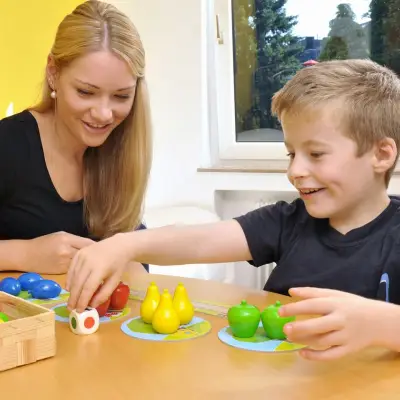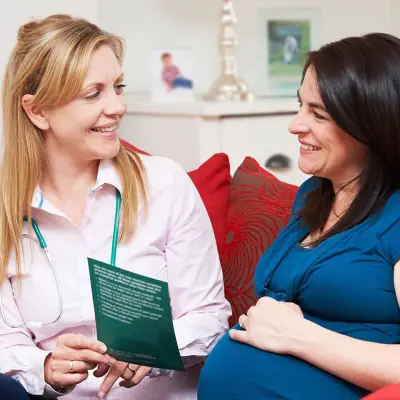Grief is a natural response to losing someone you love. While most people gradually learn to adjust to life without the person they've lost, for some, the pain doesn’t ease over time.
If you’re researching complicated grief disorder, you or someone you know may be struggling with a loss that feels impossible to move past. Complicated grief disorder (sometimes called extended grief or chronic grief) is a condition where grief remains intense and overwhelming long after the loss, preventing someone from healing and moving forward.
In this post, we’ll explore what complicated grief disorder is, what causes it, the symptoms to watch out for, and the treatments available.
Jump to:
- What is Complicated Grief Disorder?
- How Does Complicated Grief Differ from Traumatic Grief?
- What are the Causes of Complicated Grief Disorder?
- Symptoms of Complicated Grief Disorder
- Is Complicated Grief a Mental Illness?
- What are the 4 Types of Complicated Grief?
- Treatments for Complicated Grief Disorder
- The Best Treatment for Prolonged Grief Disorder
- When to Seek Help
- Study Bereavement Counselling for £29
Recommended for you!
Best SellersWhat is Complicated Grief Disorder?
Complicated grief disorder, also known as persistent complex bereavement disorder, occurs when the grieving process becomes prolonged and significantly disrupts a person’s ability to function in daily life. Grief is personal and can look different for everyone, but complicated grief tends to involve feelings of extreme sadness, longing, and emotional pain that don’t seem to diminish over time.
The definition of complicated grief disorder is the inability to adapt to the loss, often accompanied by an overwhelming sense of disbelief or anger. It’s more than just prolonged sadness; it’s grief that feels "stuck," leaving the person trapped in their sorrow.
How Does Complicated Grief Differ from Traumatic Grief?

While complicated grief disorder and traumatic grief share similarities, they aren't quite the same. Traumatic grief typically follows a sudden, unexpected, or violent loss, such as the death of a loved one in an accident. This type of grief is rooted in shock and trauma, which complicates the grieving process further.
Complicated grief, however, is more about the person’s inability to move through the natural stages of grief, regardless of how the loss occurred. The person feels as if they can’t return to life as it was before, often struggling to imagine a future without their loved one.
What are the Causes of Complicated Grief Disorder?
There’s no one cause of complicated grief disorder, but certain factors may increase the likelihood of developing it. Some common causes include:
- Sudden or unexpected loss: When a death is sudden, it can leave the bereaved in shock, making it harder to accept the reality of the loss.
- Close relationships: Those who were particularly close to the deceased, such as spouses or parents, may be at higher risk.
- Lack of support: People who feel isolated or lack a support system during the grieving process may struggle to cope with their emotions.
- Past trauma: If someone has unresolved trauma, it can complicate the grieving process, intensifying feelings of pain and loss.
- Mental health conditions: Those with a history of anxiety, depression, or other mental health issues may find it more difficult to manage their grief.
Symptoms of Complicated Grief Disorder

Recognising the symptoms of complicated grief disorder can help you understand when grief has become problematic. Some key symptoms include:
- Intense longing or yearning for the deceased: An overwhelming desire to be with the person who has passed away, even months or years later.
- Inability to accept the loss: Struggling to believe that the loss is real, often living in denial or feeling stuck in disbelief.
- Avoidance of reminders: Avoiding places, people, or activities that remind them of their loved one.
- Deep sadness and emotional pain: While sadness is a natural part of grief, those with complicated grief experience it intensely and for an extended period.
- Anger or bitterness: Feeling intense anger about the loss, sometimes directed at others or even at the deceased.
- Isolation and withdrawal: Pulling away from social situations or relationships that were once important.
- Difficulty finding joy: Struggling to feel happy or engage in life after the loss.
Is Complicated Grief a Mental Illness?
While complicated grief disorder shares some similarities with conditions like depression, it’s not classified as a traditional mental illness. However, it is recognised as a significant emotional disorder that requires professional attention.
The prolonged and debilitating nature of complicated grief can affect a person’s mental health, leading to other issues such as anxiety or depression if left untreated.
What are the 4 Types of Complicated Grief?

Complicated grief disorder can manifest in different ways. Generally, it’s grouped into four main types:
- Chronic Grief: Grief that lasts for an exceptionally long time without any signs of relief.
- Delayed Grief: Grief that surfaces long after the loss has occurred, often triggered by another life event.
- Exaggerated Grief: Where the grieving response is extremely intense, leading to self-destructive behaviour or overwhelming emotional distress.
- Masked Grief: Where the person doesn’t outwardly display typical grief symptoms but instead experiences physical or emotional issues that mask their grief.
Treatments for Complicated Grief Disorder
If you or someone you know is struggling with complicated grief disorder, effective treatments are available. Healing from grief is possible, and these treatments can help:
1. Therapy for Complicated Grief
One of the most effective treatments for complicated grief is specialised grief therapy, sometimes known as complicated grief treatment. This approach focuses on helping the person come to terms with the loss, process their emotions, and develop coping mechanisms.
Cognitive behavioural therapy (CBT) is often used to address negative thought patterns that may be contributing to stuck grief.
2. Medication for Grief
In some cases, medication may be prescribed to help manage symptoms of complicated grief, particularly if the person is experiencing depression or anxiety alongside their grief.
Antidepressants can be used to stabilise mood, but they’re often combined with therapy for the best results.
3. Support Groups
Talking with others who are going through a similar experience can provide immense comfort. Bereavement support groups offer a safe space to share feelings, gain support, and learn from others’ experiences. Feeling understood can help reduce feelings of isolation and help people process their grief.
4. Self-care Practices
In addition to professional help, self-care is an important part of healing. Practices like journaling, meditation, and spending time in nature can help people reconnect with themselves and find moments of peace.
The Best Treatment for Prolonged Grief Disorder
While there’s no one-size-fits-all approach to grief, the best treatment for prolonged grief disorder often involves a combination of therapy, medication, and support. Everyone’s grieving process is different, so it’s important to explore different options and find what works best for you.
Recommended for you!
Best SellersWhen to Seek Help
It’s natural to feel pain and sadness after a loss, but if these feelings don’t start to ease after several months, or if they are getting in the way of your ability to function, it may be time to seek help. Complicated grief disorder is a real condition, and there’s no shame in reaching out for support when you need it.
Study Bereavement Counselling for £29
If you or someone you know is struggling with complicated grief disorder, professional support can make a world of difference. At Centre of Excellence, we offer a Bereavement Counselling Diploma Course, designed to help you understand grief, develop skills to support others, or even find ways to process your own feelings. Enrol today at the discounted price of £29!













